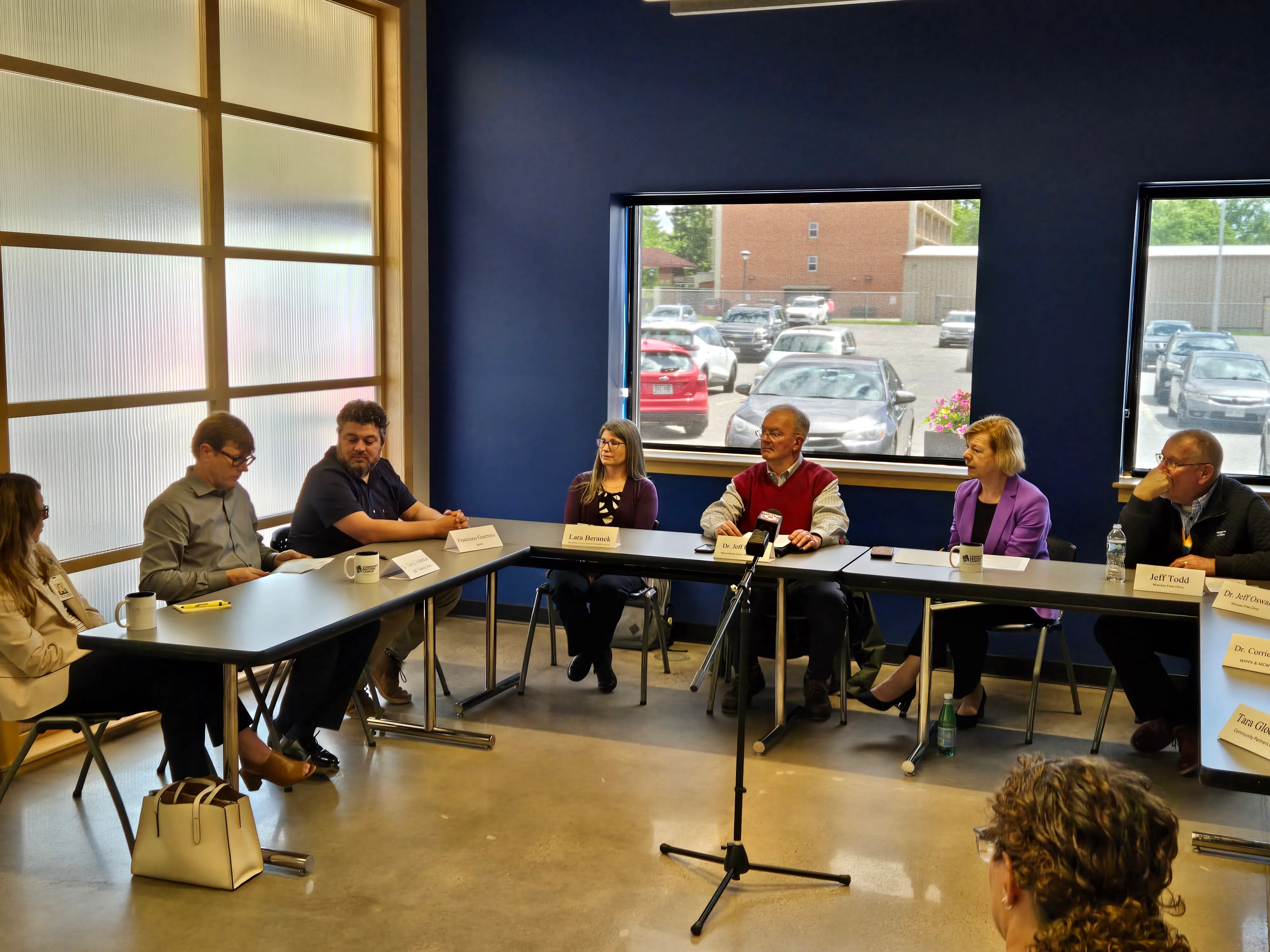
U.S. Senator Baldwin hosts medical experts for roundtable on asthma-related issues - Photo by MWC's Tom Schumacher
WAUSAU, WI (WSAU) – U.S. Senator Tammy Baldwin visited Wausau on Wednesday afternoon to talk to doctors and area healthcare providers about a federal price cap on inhalers at $35 that will take effect this weekend.
When asked about the price cap and what it will mean for those who are uninsured, Baldwin said it’s a step in the right direction, saying, “To fix things, we need to be able to peek behind that curtain and see the things they’re (drug manufacturers) doing in secret, whether that is practices of the pharmacy benefit or the inhaler manufactures. The bottom line is they set the sales price and they set it differently here in the U.S. than they do anywhere else in the world, and once we put a spotlight on that, three out of the major manufacturers agreed to lower their prices.”
Baldwin worked with Senate colleagues such as Vermont Sen. Bernie Sanders and others on the HELP (Health, Education, and Justice) Committee to launch an investigation into drug companies such as GlaxoSmithKline, AstraZeneca, and Boehringer Ingelheim for charging a price for an inhaler that is much different than prices charged in Europe. According to CNBC, some of the price disparities included in the investigation are AstraZeneca’s Breztri Aerosphere, which costs on average $645 in the U.S. before insurance while only costing $49 in the U.K.
“We remain dedicated to addressing the need for affordability of our medicines, but the system is complex and we cannot do it alone,” AstraZeneca CEO Pascal Soriot said in a statement in March. “It is critical that Congress bring together key stakeholders to help reform the healthcare system so patients can afford the medicines they need, not just today but for the future.”
Some of Baldwin’s colleagues and fellow HELP committee members, such as Louisiana’s Sen. Bill Cassidy, agreed that prices are too high but expressed concerns that capping prices at $35 could lead to drug companies producing fewer new drugs and be a disincentive for smaller drug companies to compete on the open market, saying, “Now we want to create incentives, but we want to be able to provide access; without access, it’s as if the drug has never been invented.” His concerns come as the London School of Economics and Political Science stated after conducting a 2020 study that the average cost to make a new medicine can cost up to $1.3 billion, with manufacturing and distribution of new drugs costing up to $500 million alone.
Asthma affects an estimated 25 million Americans, while COPD affects around 16 million Americans, and according to research published online in the Annals of the American Thoracic Society, asthma-related issues cost the US economy more than $80 billion annually in medical expenses, missed work, school days, and deaths.







Comments